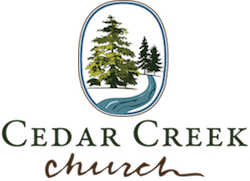For Old Times' Sake
Should auld acquaintance be forgot,
And never brought to mind?
Should auld acquaintance be forgot,
And auld lang syne.
When Scotland's national poet laureate Robert Burns sent the poem "Auld Lang Syne" to the Scots Musical Museum in 1788, he acknowledged that it was a song that had been used by the Scottish church for the previous 600 years as a funeral oration, but that he had been the first to record the verses on paper. For Burns, the words inspired a fire in his soul as singers toast friends and years gone by. But why do Americans cling to this tune sometimes deemed "the most famous song that nobody knows" each New Year's Eve?
Blame the Presbyterians ...
As the Scottish Reformation brought to power a new denomination known as "Presbyterians" in the 17th century, these Calvinist leaders did not care for the bawdy celebrations of Christmas. In that era, Yule was a winter solstice celebration when men often dressed as women and women dressed as men and they went door-to-door begging treats in disguise, much like Halloween today. As the tradition increasingly degenerated into drunken rowdiness and immoral behavior, both the church and the government took issue. In fact, the Scottish parliament banned Christmas, and Presbyterian Puritans followed suit in 1647 in Boston as well, declaring public celebrations of Christmas illegal for a generation.
As the Scottish public sought new ways to celebrate, the song "Auld Lang Syne" became an established part of the Scottish Hogmanay (New Year's celebration). Celebrants stood in a circle just before midnight holding hands as they sang. When they reached the beginning of the final verse, they crossed their arms over their bodies, their left hand holding the hand of the person on their right, and their right hand holding that of the person on their left. As the song ended, everyone moved to the middle, still holding hands, then turned under to end up facing outward with their hands still joined. As Presbyterian Scots put down deeper roots in both Scotland and the new America, an end-of-the-year celebration displaced Christmas as the number one midwinter celebration.
From the 1920s through the 1970s, Americans tuned into the New Year's Eve broadcast by Guy Lombardo and the Royal Canadians, a big band act that included "Auld Lang Syne" to ring in the New Year. As the influence of American pop culture spanned the globe from the 1960s on, images of people ringing in the New Year to "Auld Lang Syne" were beamed into homes around the world. The Scottish ballad thus morphed from a funeral song to a midcentury American television ritual to a worldwide phenomenon. And most people still don't understand the song.
Written in Scottish language, "Auld Lang Syne" is translated "For Old Times' Sake" or "Since Long Ago." The lyrics are about toasting old friends and recalling adventures from past years; there is no mention of a new year, although the song physically bonds together the singers who are remembering the past and looking ahead to the new. Translations of the verses have varied over the years from the Scottish to the English and a variety in between:
Scots version--
Shouldauldacquaintance beforgot,
And never brought to mind?
Should auld acquaintance be forgot,
And auld lang syne?
(Chorus)
Forauld lang syne, my jo,
Forauld lang syne,
We’ll tak a cup o’ kindness yet,
Forauld lang syne.
And surely ye’ll be your pint-stowp!
And surely I’ll be mine!
And we’ll tak a cup o’ kindness yet,
Forauld lang syne.
We twa hae run about the braes
And pu’d the gowans fine;
But we’ve wander’d mony a weary foot
Sin auld lang syne.
We twa hae paidl’d i’ the burn,
Frae mornin’ sun till dine;
But seas between us braid hae roar’d
Sin auld lang syne.
And there’s a hand, my trusty fiere!
And gie’s a hand o’ thine!
And we’ll tak a right guidwillywaught,
Forauld lang syne.
English version--
Should oldacquaintancebeforgot,
And never brought to mind?
Should old acquaintance be forgot,
And old lang syne?
(Chorus)
Forauld lang syne, my dear,
Forauld lang syne,
We’ll take a cup of kindness yet,
Forauld lang syne.
And surely you’ll buy your pint cup!
And surely I’ll buy mine!
And we’ll take a cup o’ kindness yet,
Forauld lang syne.
We two have run about the slopes,
And picked the daisies fine;
But we’ve wandered many a weary foot,
Since auld lang syne.
We two have paddled in the stream,
From morning sun till dine;
But seas between us broad have roared
Since auld lang syne.
And there’s a hand my trusty friend!
And give me a hand o’ thine!
And we’ll take a right good-will draught,
Forauld lang syne.
As we honor the old and herald in the new this week, take note of the impact Scottish Presbyterians have had on a world that now toasts a bygone culture. How will you draw your loved ones close this week, holding hands as 2021 draws to a close and linking arms to face 2022 together with a Holy Spirit-inspired confidence?
Blessings on your New Year's celebration, whatever it may be. May the Holy Spirit be fully present as you look to 2022 with hope and peace.
Jennie

